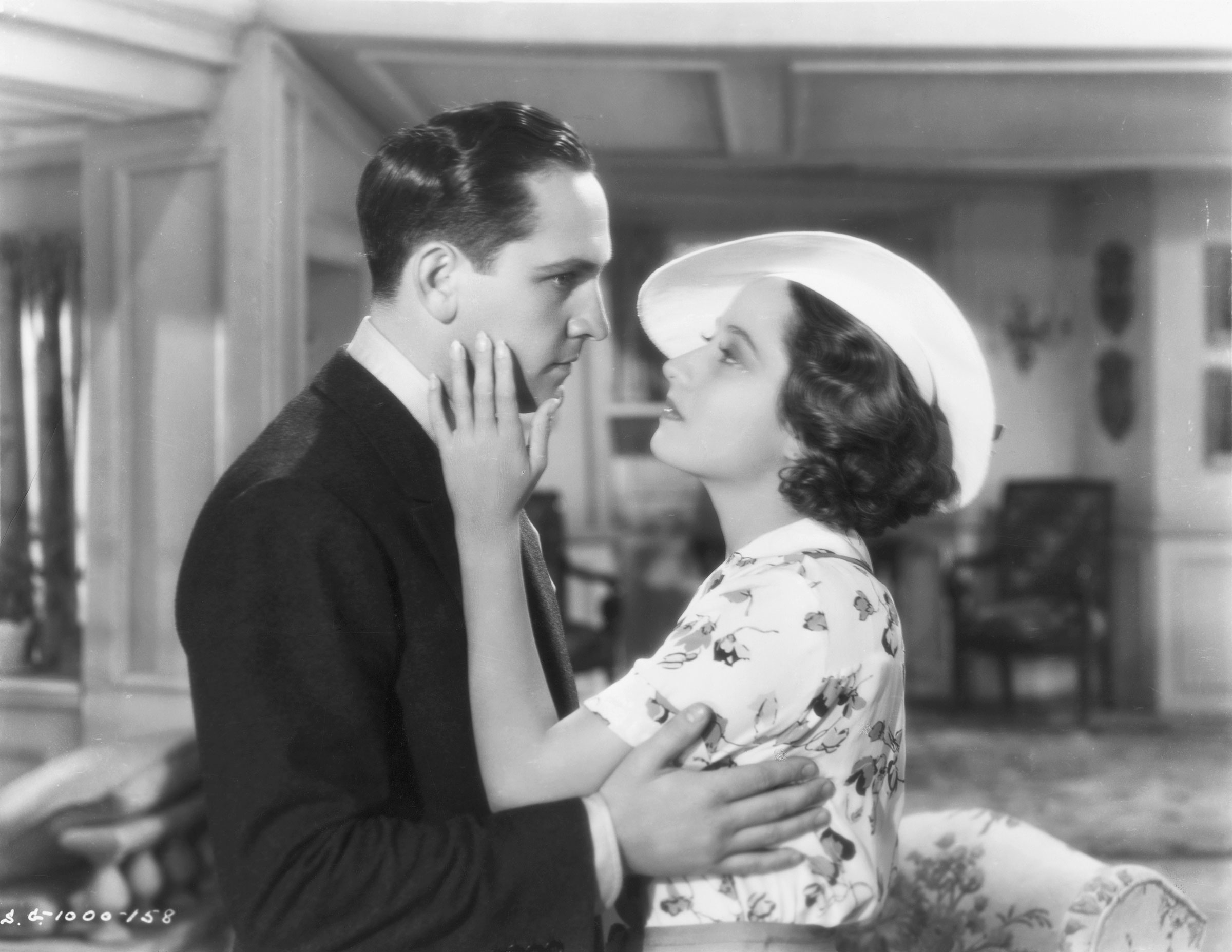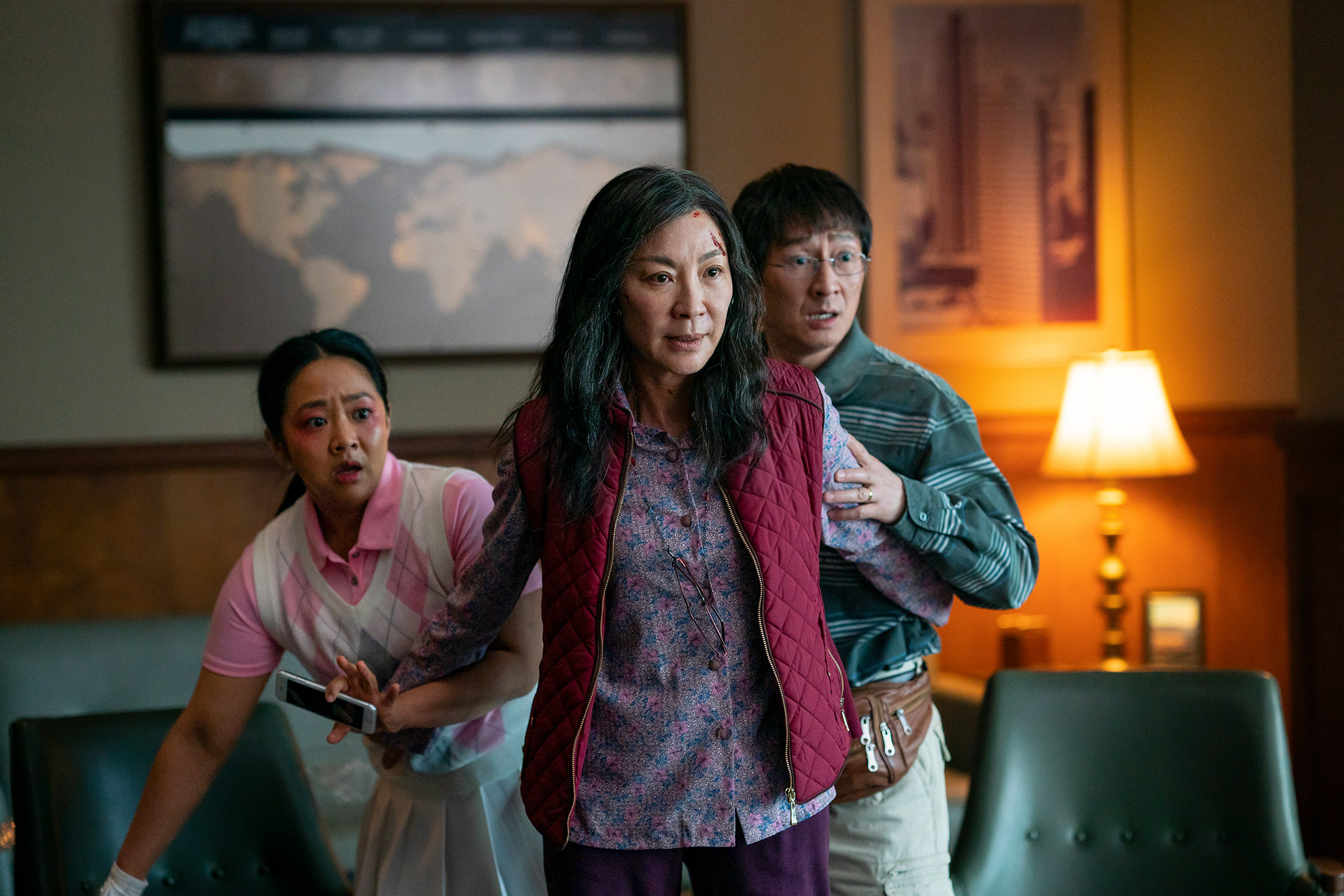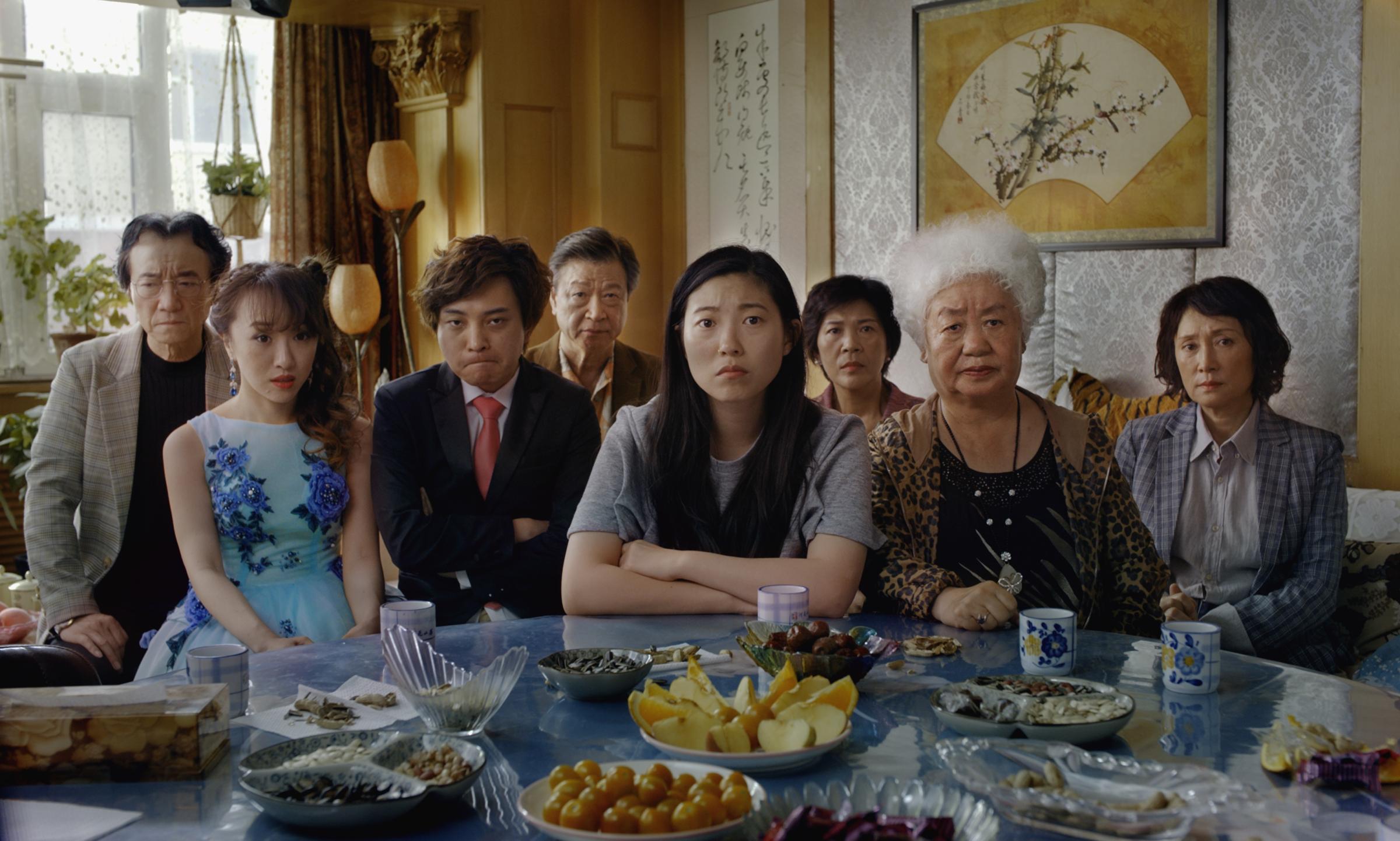True to the name of her film, actor Michelle Yeoh, star of Everything Everywhere All at Once, is winning everything, everywhere these days. And she is breaking ground left and right. She is only the second Asian woman to win a Golden Globe for Best Actress in a Motion Picture (Musical/Comedy). The first Asian woman to win the award, Awkwafina, won it just three years ago, in 2020. Now with the upcoming Academy Awards on March 12, Yeoh is the first Asian woman to be nominated for Best Performance by an Actress in a Leading Role. Asian actors earned a record four nominations in the major acting categories—Yeoh’s co-stars Ke Huy Quan and Stephanie Hsu and The Whale’s Hong Chau—while Daniel Kwan, along with his co-director Daniel Scheinert, is up for Best Directing.
There is, however, a slight distinction to be made here: Yeoh, who is of Malaysian Chinese descent, is the first openly Asian woman to be nominated for the Best Actress award, but not the first Asian woman to be nominated.
The first Asian woman to be nominated for Best Actress was Merle Oberon in 1936, for The Dark Angel. The Mumbai-born actor, who was of mixed race and did not promote her Asian heritage, played white women in her film roles. More than eight decades later, Yeoh has said that wants to be seen as a role model for Asian women everywhere. In her speech accepting the Screen Actors Guild Award on Feb. 26, she said, “This is not just for me, this is for every little girl that looks like me.”
Here’s what to know about the history of actors of Asian descent at the Oscars, from Oberon’s hidden identity to 2023’s groundbreaking year.
Read more: Crazy Rich Asians Kicked Down the Door. Now Asian Americans Are Fighting To Stay in the Room
From passing to “yellowface”

In The Dark Angel, Oberon played a white woman in the middle of a love triangle with her two childhood friends who are World War I soldiers. In a line from a 1935 Picture Play profile that now reads as particularly revealing, she said, “It’s easier for me to be something which I am not than it is to act myself.” While her performance received rave reviews, the Oscar that year ultimately went to Bette Davis for Dangerous.
“She was passing,” Monica Sandler, a historian of Hollywood at the University of California, Los Angeles, says of Oberon’s career playing non-Asian roles. “She’s an example of someone who was hiding her identity, was able to get parts in the industry specifically because she was hiding her identity…If she had been openly Asian at that time, she would not have been able to have any leading roles.” The love triangle in The Dark Angel, she argues, would have been particularly scandalous had Oberon’s character been Asian because “you could not have a romantic relationship between two people of two different races in movies during that period of time.”
Hollywood did, however, reward white actors who played Asian characters onscreen—a practice of using makeup to change one’s appearance known as “yellowface.” One famous example from this period is German actor Luise Rainer winning Best Actress for The Good Earth, the 1937 film adaptation of the Pearl Buck classic. As Sandler sums up this milestone, the Oscars had “never rewarded an Asian person but they did reward a person for playing Asian.”
Buck’s novel has generated criticism over the years. Some don’t think the author, a white American who grew up in China with a missionary family, painted a realistic picture of life in China. “The criticism of Buck [is] essentially that she took Asian culture and made it white, and then it became relatable to people,” argues Sandler. The Asian characters in the book have been criticized for being oversimplified and portrayed as “victims” who “need a Western outsider to come and save them.” That was a widely shared view among white Americans, reinforced in the years to come when China would become a U.S. ally during World War II.
But even back then, there were film critics who wondered why a Chinese actor wasn’t playing a Chinese character. As Picturegoer writer Max Breen wrote in 1938, “Could not a normally inscrutable Chinese woman have done, with far less effort, all that Luise Rainer did in that film?”
Limited roles and gradually improving representation

But Breen’s comment did not account for the lack of opportunity for Asian actors at the time. When Asian women did get cast in Hollywood movies, the options were scant and often stereotypical. An Asian woman did play a part in The Good Earth, but as a mistress to the lead actor Paul Muni, whom he leaves when decides to stay with his wife. Sandler also singles out Anna May Wong, the most prominent Chinese American actress of her era, who was mostly offered roles as secondary characters who were “villainous” or “sex objects.” In fact, Wong was supposed to play the leading female role in The Good Earth but lost the part to Rainer. Buck wanted an all-Chinese cast, but the producers didn’t think that would appeal to American audiences, according to the Museum of Chinese in America.
Fast-forward to the late 1990s, and Yeoh was a star in Asia, starring in Hong Kong action films, but facing limited options in Hollywood films. Despite gaining traction as a Chinese secret agent who jumps off a skyscraper in the James Bond movie Tomorrow Never Dies in 1997, she turned down Hollywood film parts repeatedly for the next three years because she refused to play any roles that perpetuated stereotypes about Asian women. Even after she starred in the Oscar-winning Crouching Tiger, Hidden Dragon (2000), it was not until 2022 with the release of Everything Everywhere All at Once that Yeoh experienced widespread recognition of her talents by the Hollywood mainstream.
Read more: Crouching Tiger, Hidden Dragon Proves Michelle Yeoh Has Always Been Criminally Underrated
Yeoh’s success comes in the context of a broader fight for Asian representation in Hollywood which has seen both progress and setbacks in recent years. Whitewashing remains an issue; Asian and Asian American entertainers slammed the 2017 film Ghost in the Shell for casting Scarlett Johansson in the lead role of the film adaptation for a Japanese manga narrative. Actor George Takei balked at Tilda Swinton playing a Tibetan character in Doctor Strange (2016).

But there have been breakthroughs, too: In 2018, TIME lauded Crazy Rich Asians—in which Yeoh plays the protective mother of a groom—as the first modern story with an all-Asian cast and an Asian American lead in 25 years, since The Joy Luck Club in 1993. In 2021, Marvel released its first Asian-led superhero film, Shang-Chi and the Legend of the Ten Rings, while comedies like The Farewell and Always Be My Maybe were hailed for their relatable depictions of Asian American characters. And at the 2021 Oscars, Yuh-jung Youn won Best Supporting Actress for Minari, becoming the first Asian actor to win an acting Oscar since 1985 when the Cambodian actor Haing Ngor won for The Killing Fields.
Read more: The Crucial History Behind Yuh-Jung Youn’s Oscar Win
The Oscars have also seen some strides when it comes to Asian and Asian American filmmakers behind the camera. Ang Lee was the first director of Asian descent to win Best Director, for Brokeback Mountain, in 2006; he won it again for Life of Pi seven years later. Bong Joon-Ho won for Parasite in 2020, and Chloé Zhao won for Nomadland in 2021—making her not only the first Asian woman to win the prize, but also the first woman of color.
On a broader level, authentic representation of Asian stories on-screen can lead to a better understanding of Asian stories off-screen. One recent poll showed 58% of Americans couldn’t name a famous Asian American public figure. As Yeoh told TIME in 2022, her fans tell her that her career has the power to uplift the entire Asian community, “They come up to me and they say, ‘You’re doing it for us.’”
More Must-Reads from TIME
- Caitlin Clark Is TIME's 2024 Athlete of the Year
- Where Trump 2.0 Will Differ From 1.0
- Is Intermittent Fasting Good or Bad for You?
- The 100 Must-Read Books of 2024
- Column: If Optimism Feels Ridiculous Now, Try Hope
- The Future of Climate Action Is Trade Policy
- FX’s Say Nothing Is the Must-Watch Political Thriller of 2024
- Merle Bombardieri Is Helping People Make the Baby Decision
Write to Olivia B. Waxman at olivia.waxman@time.com